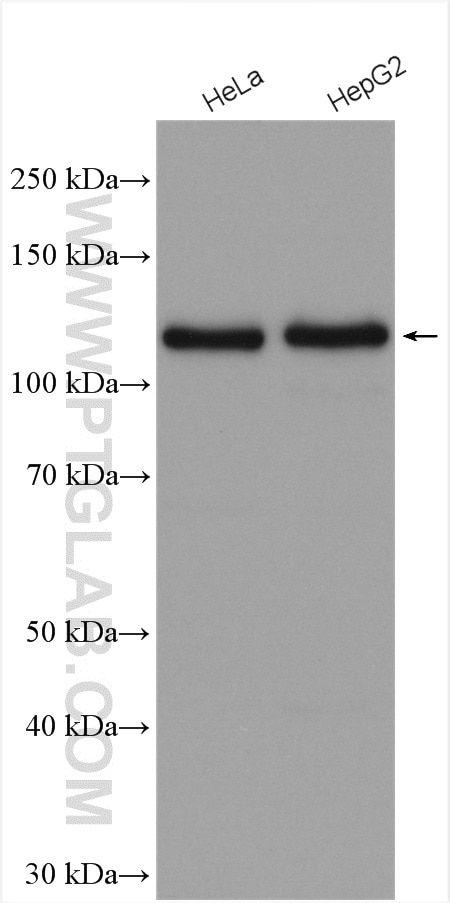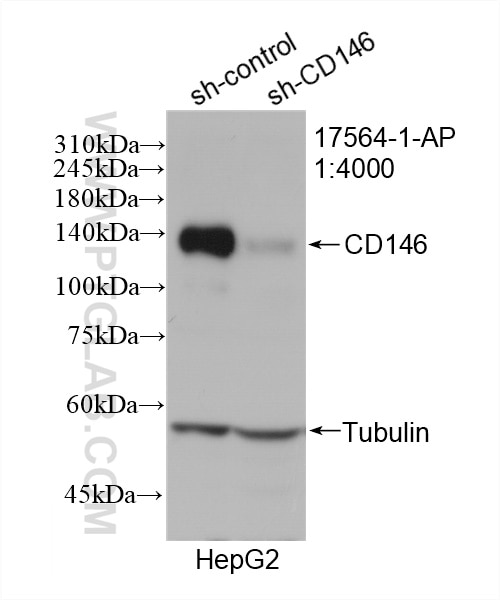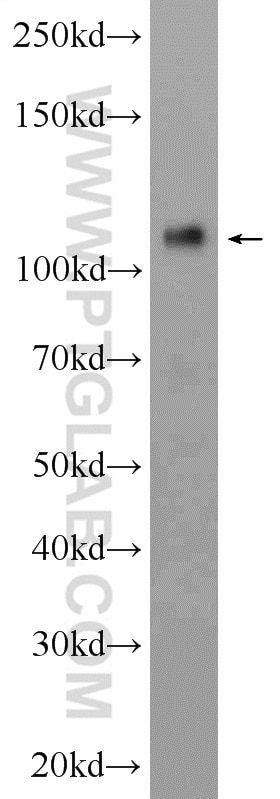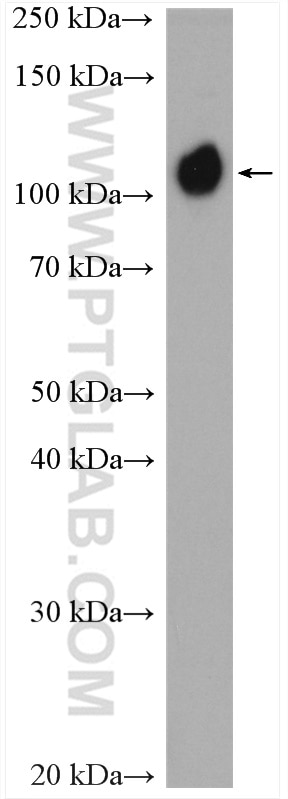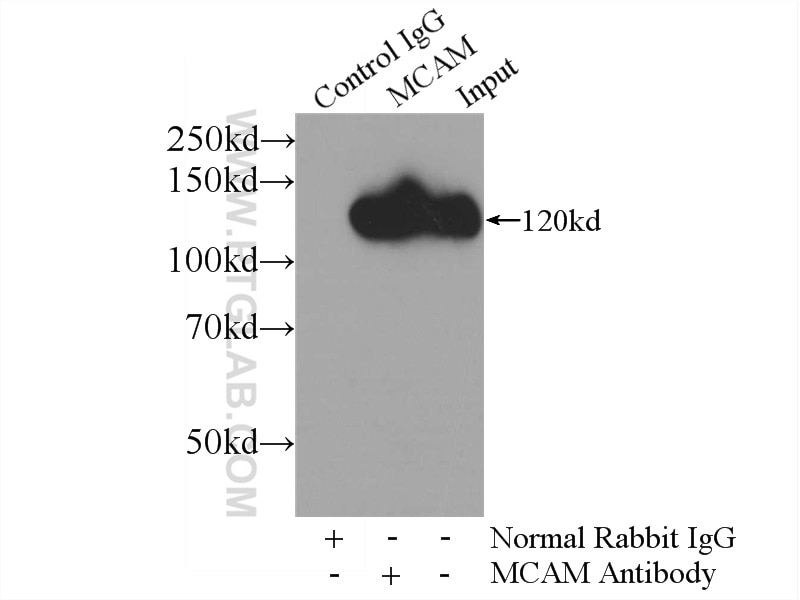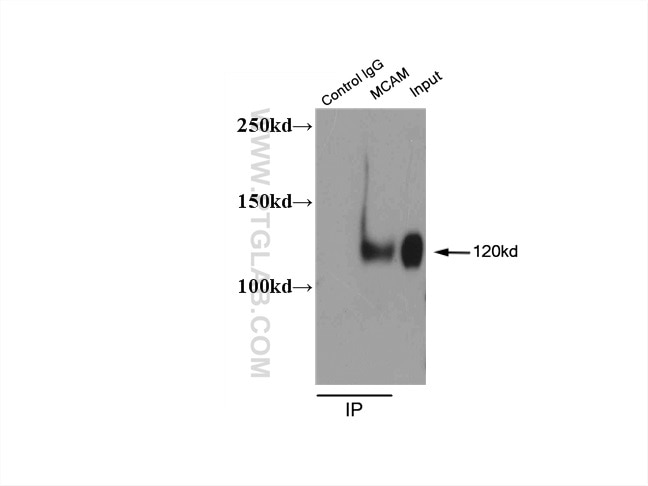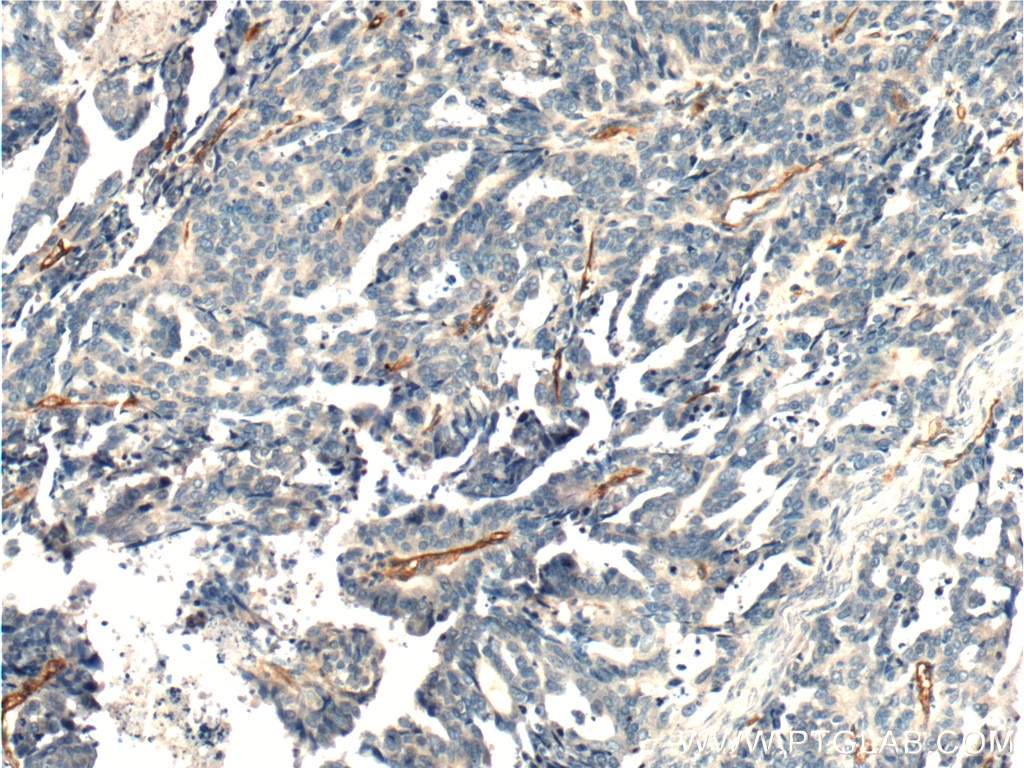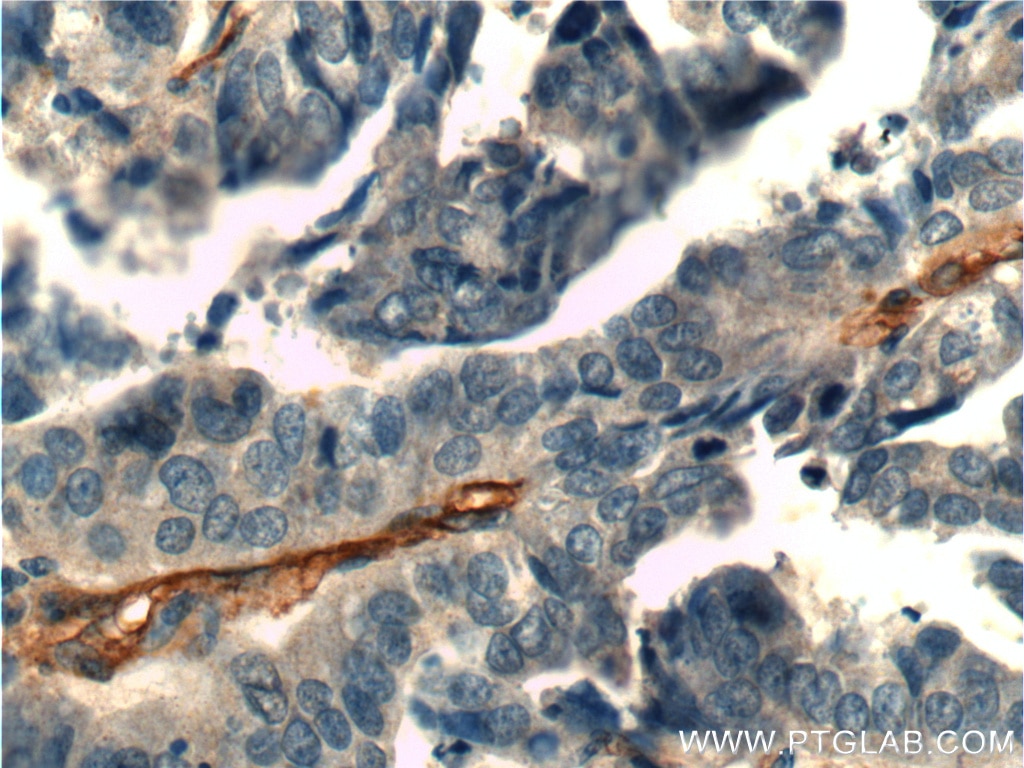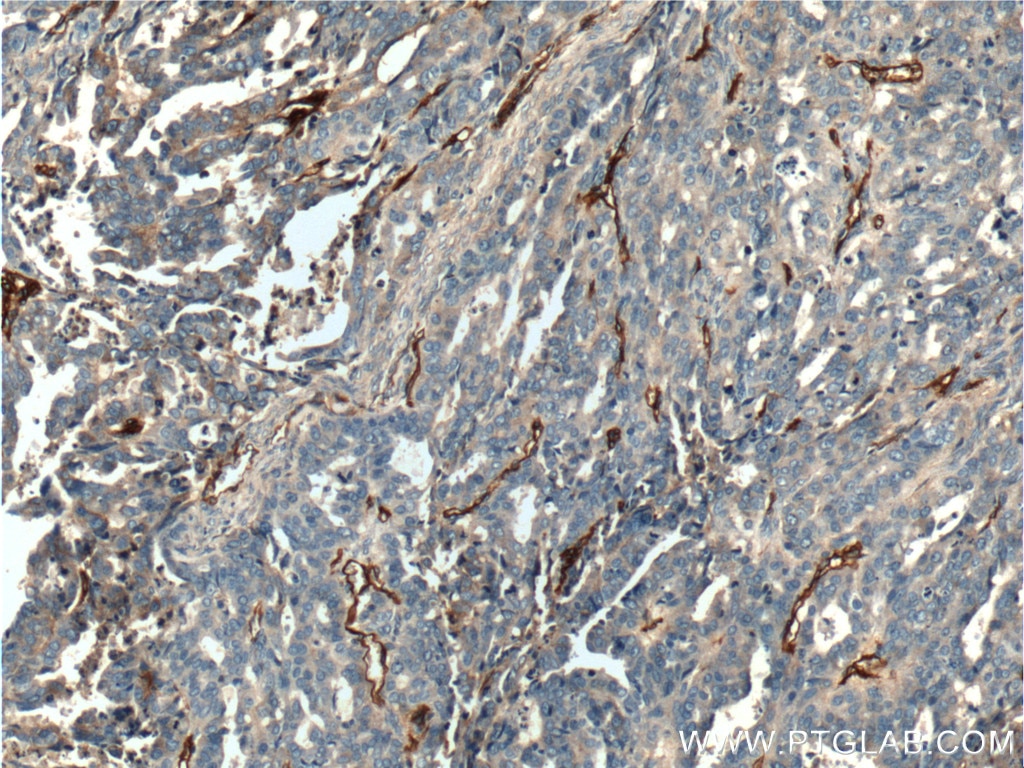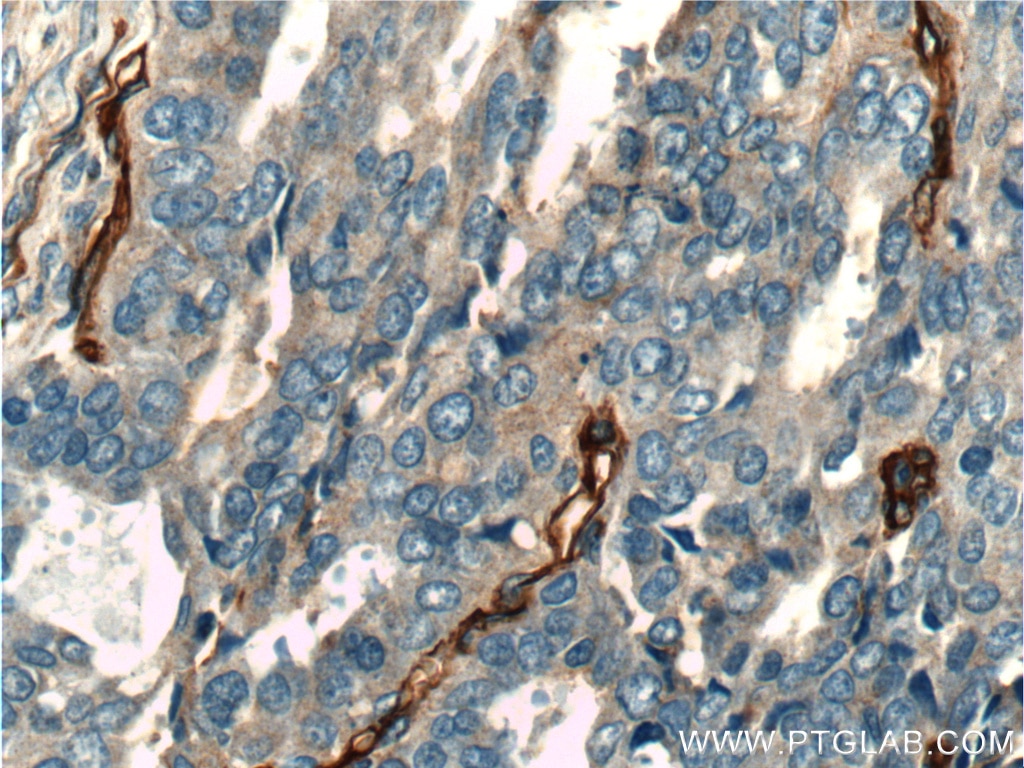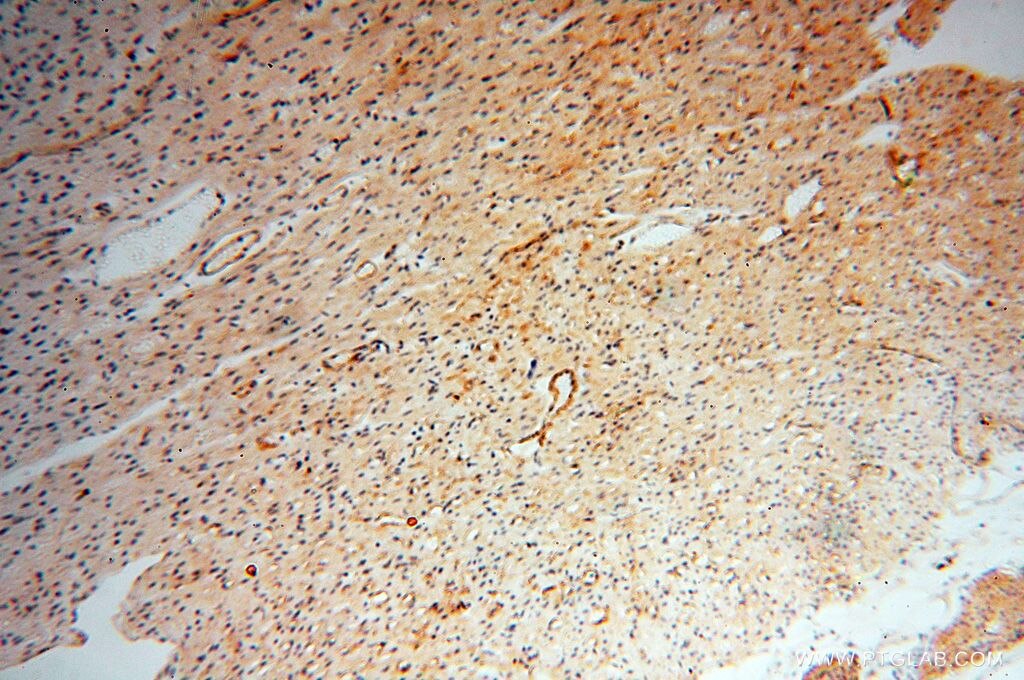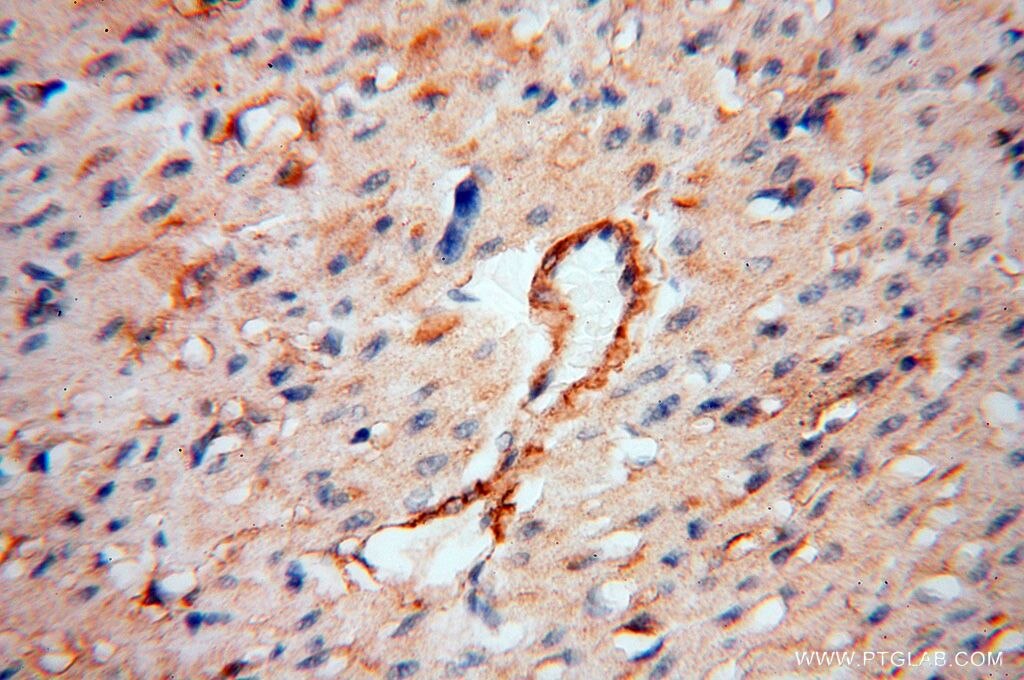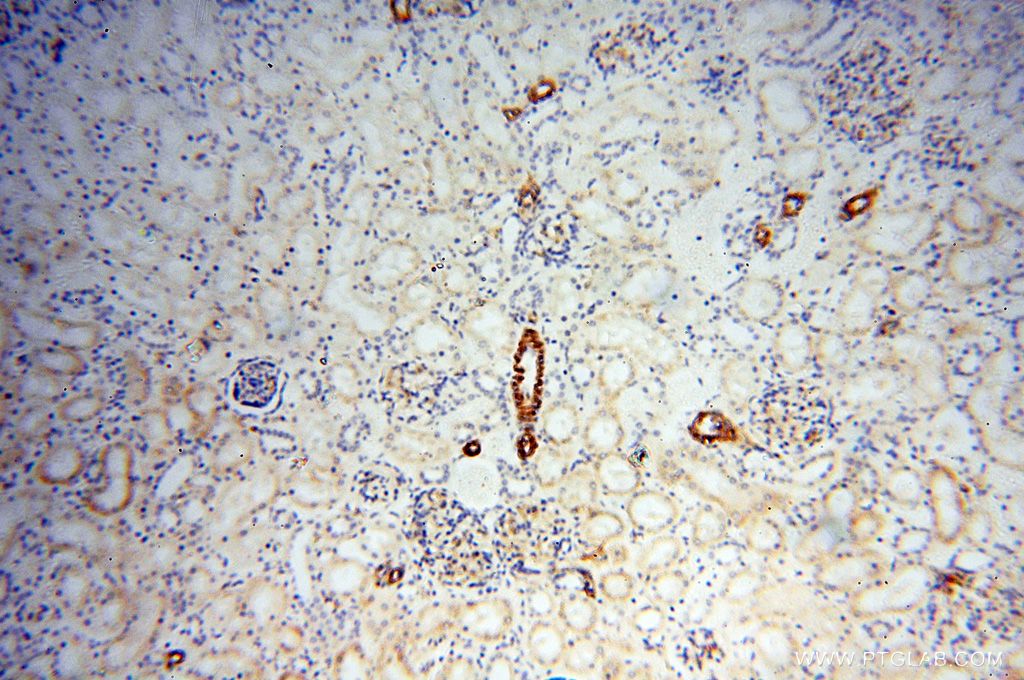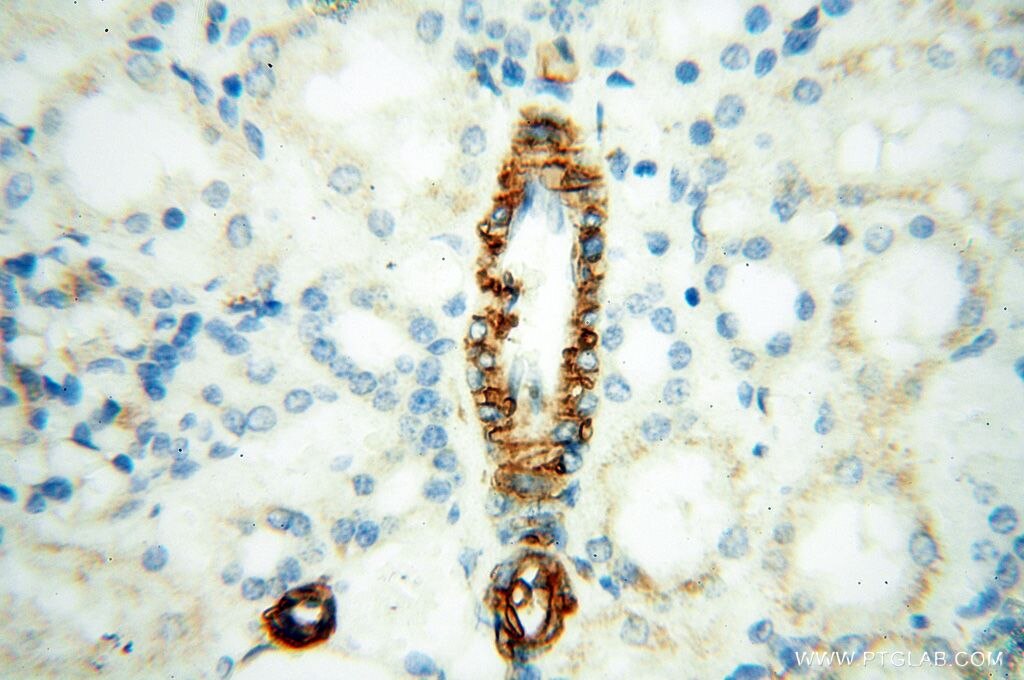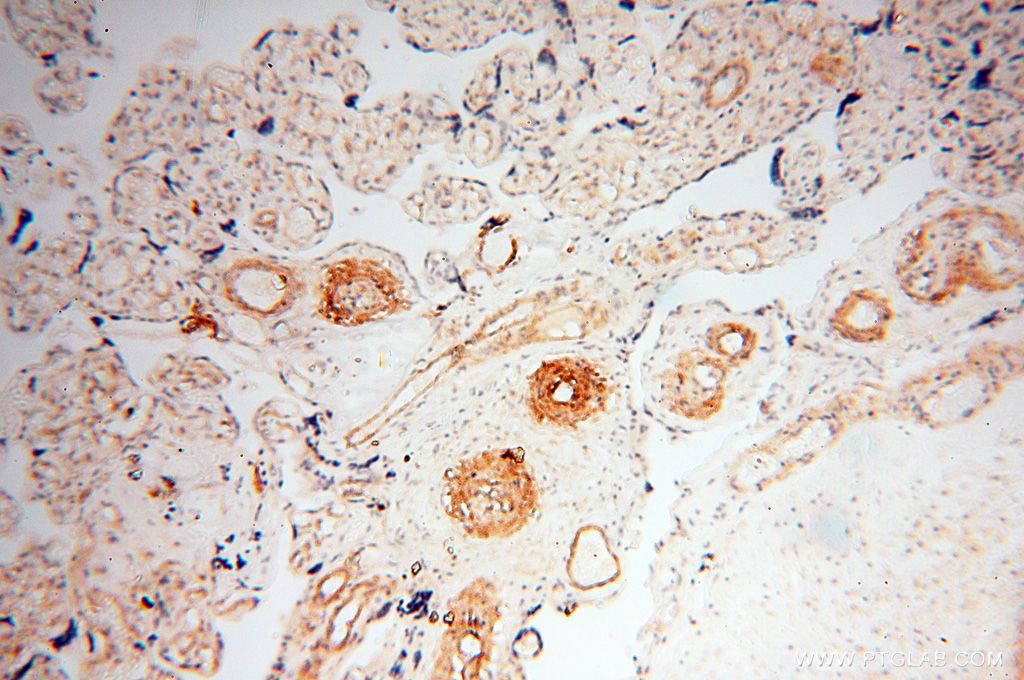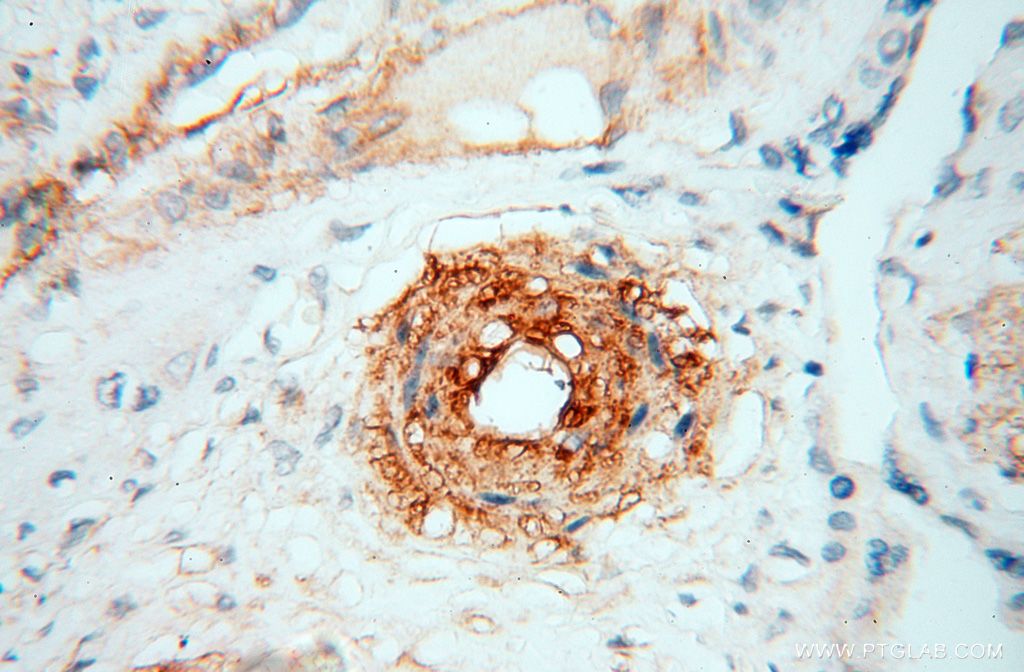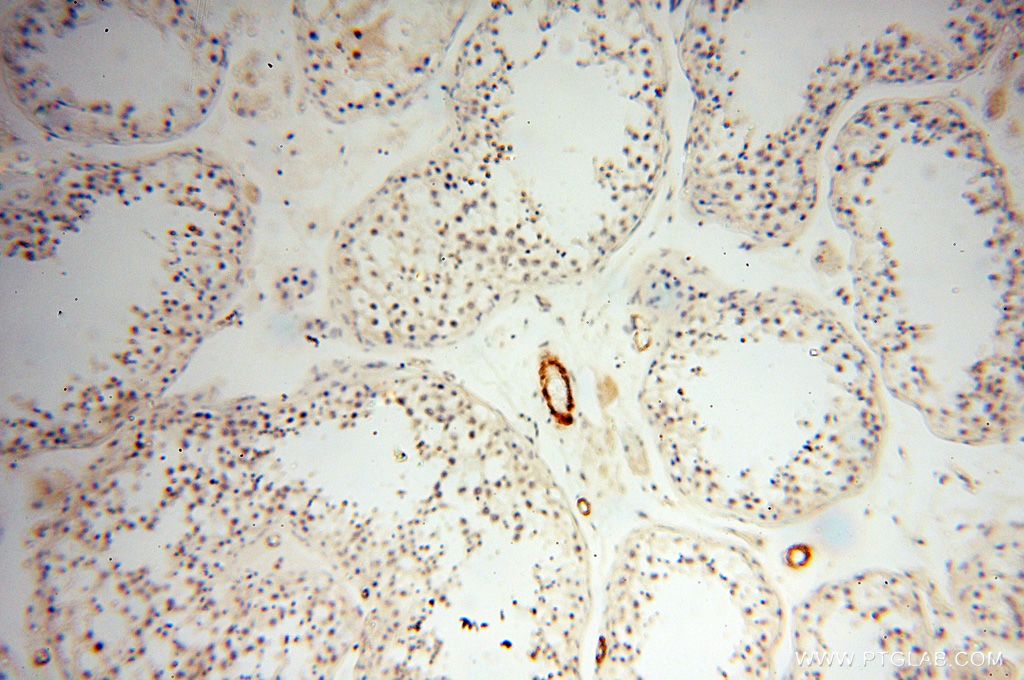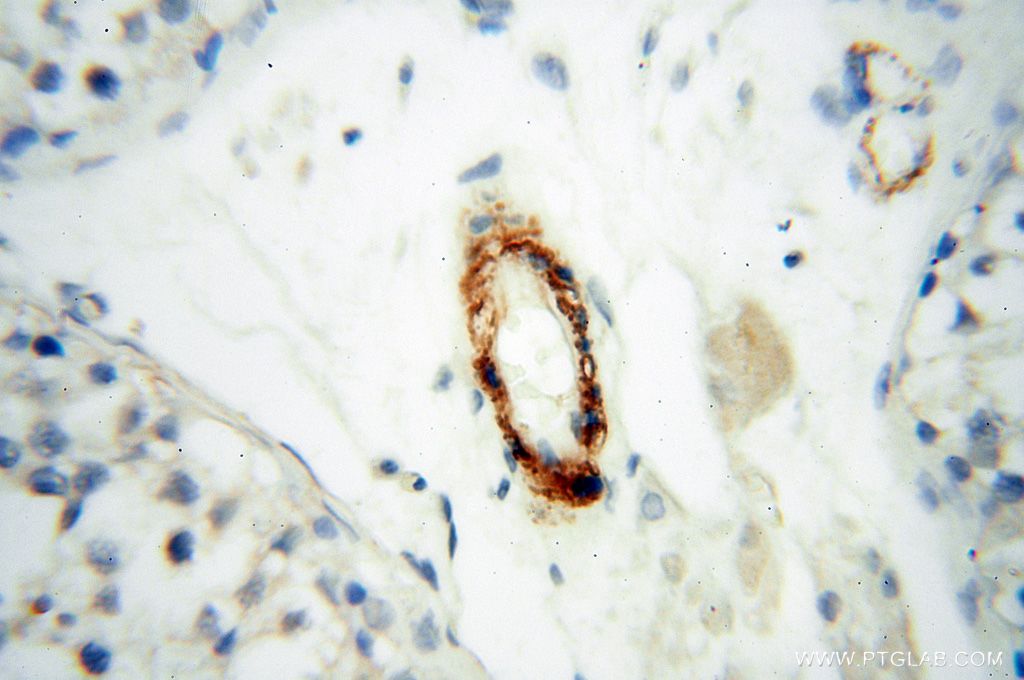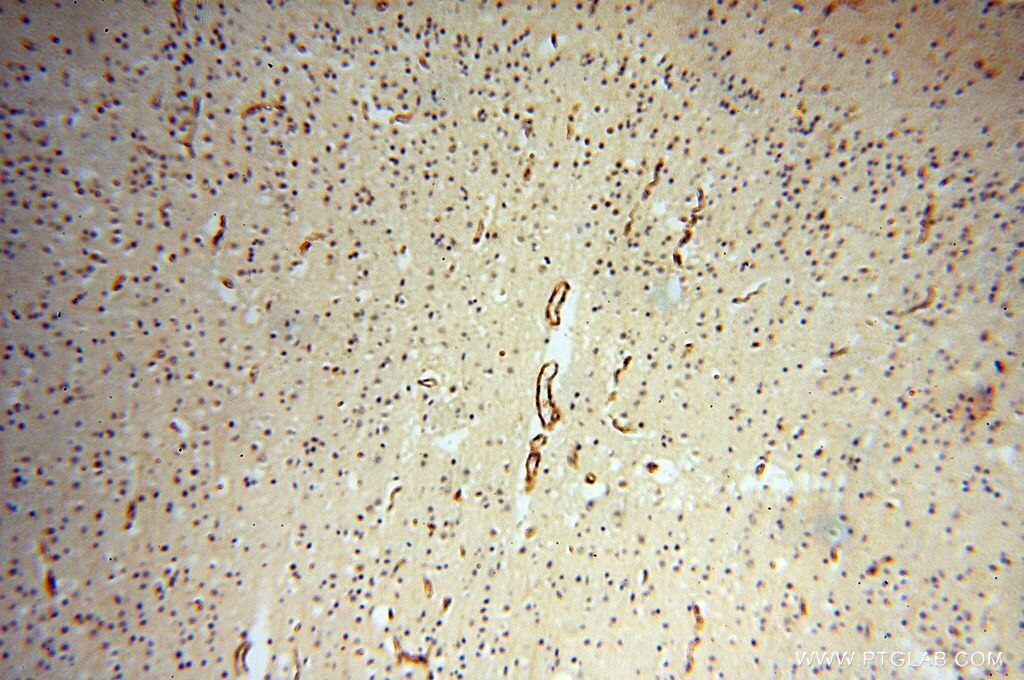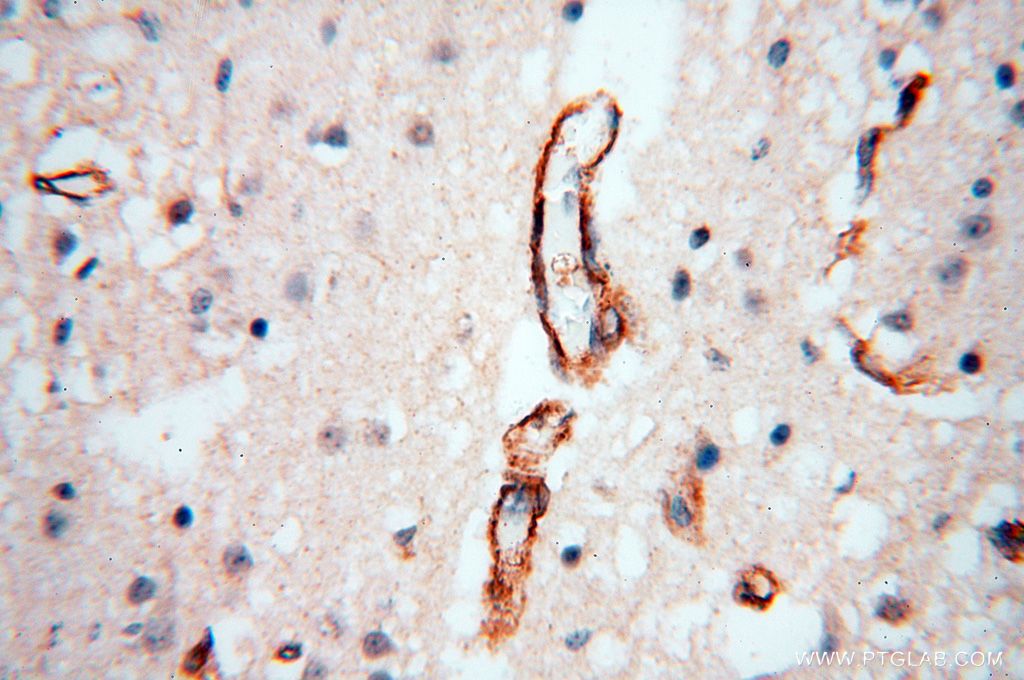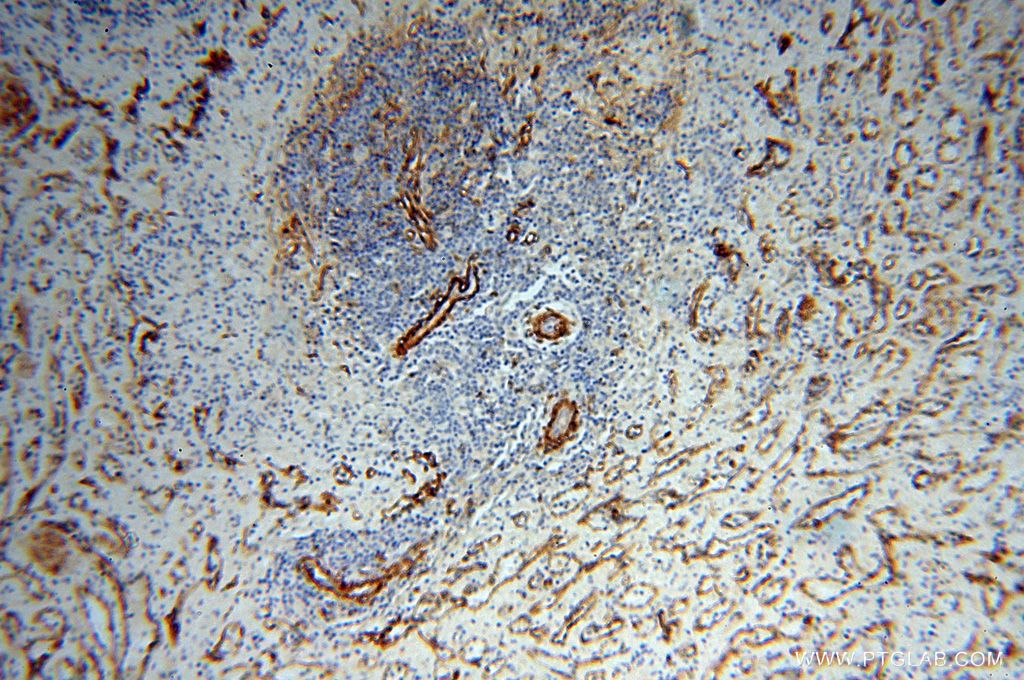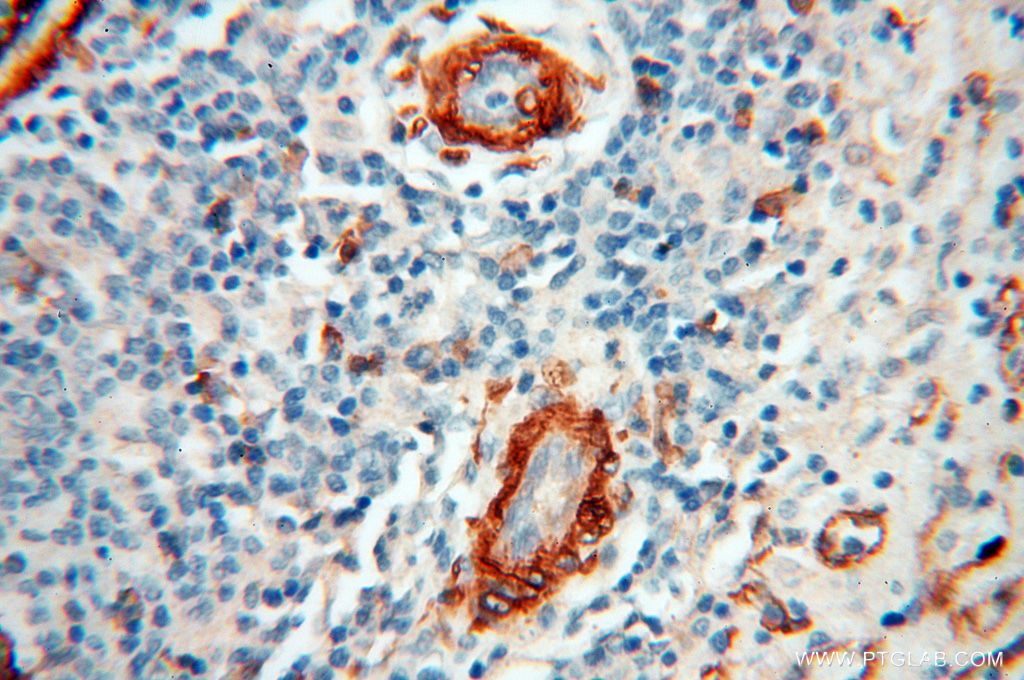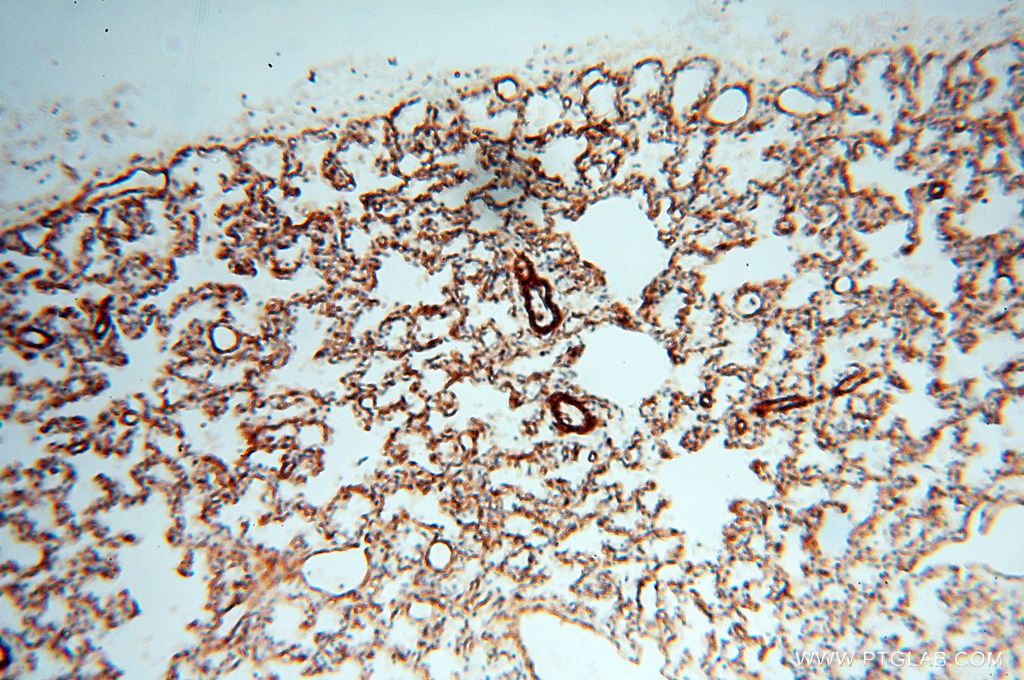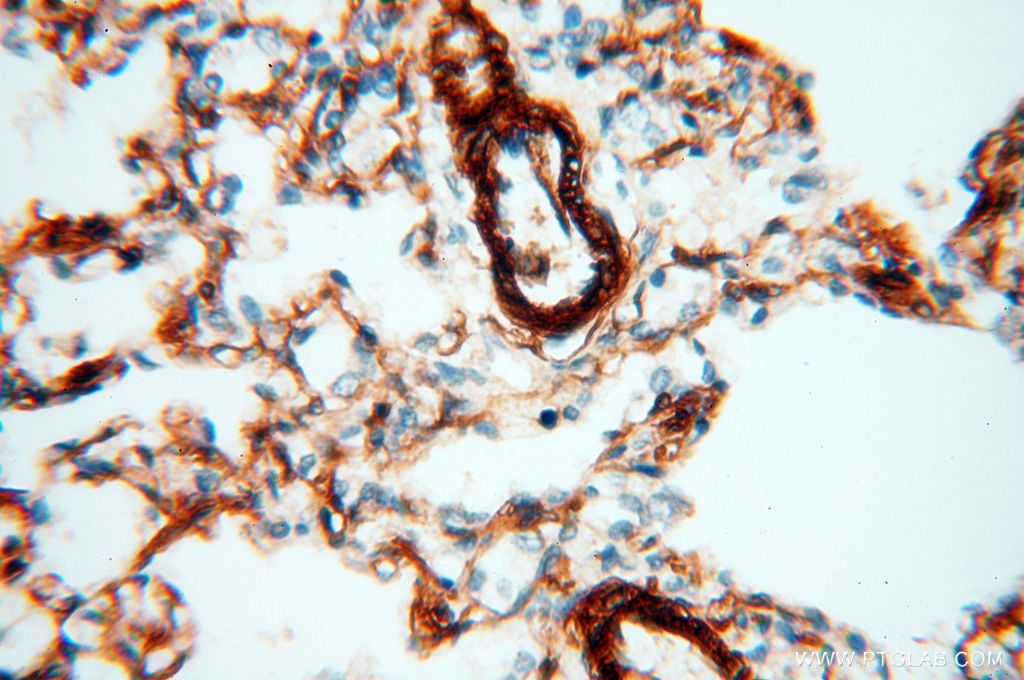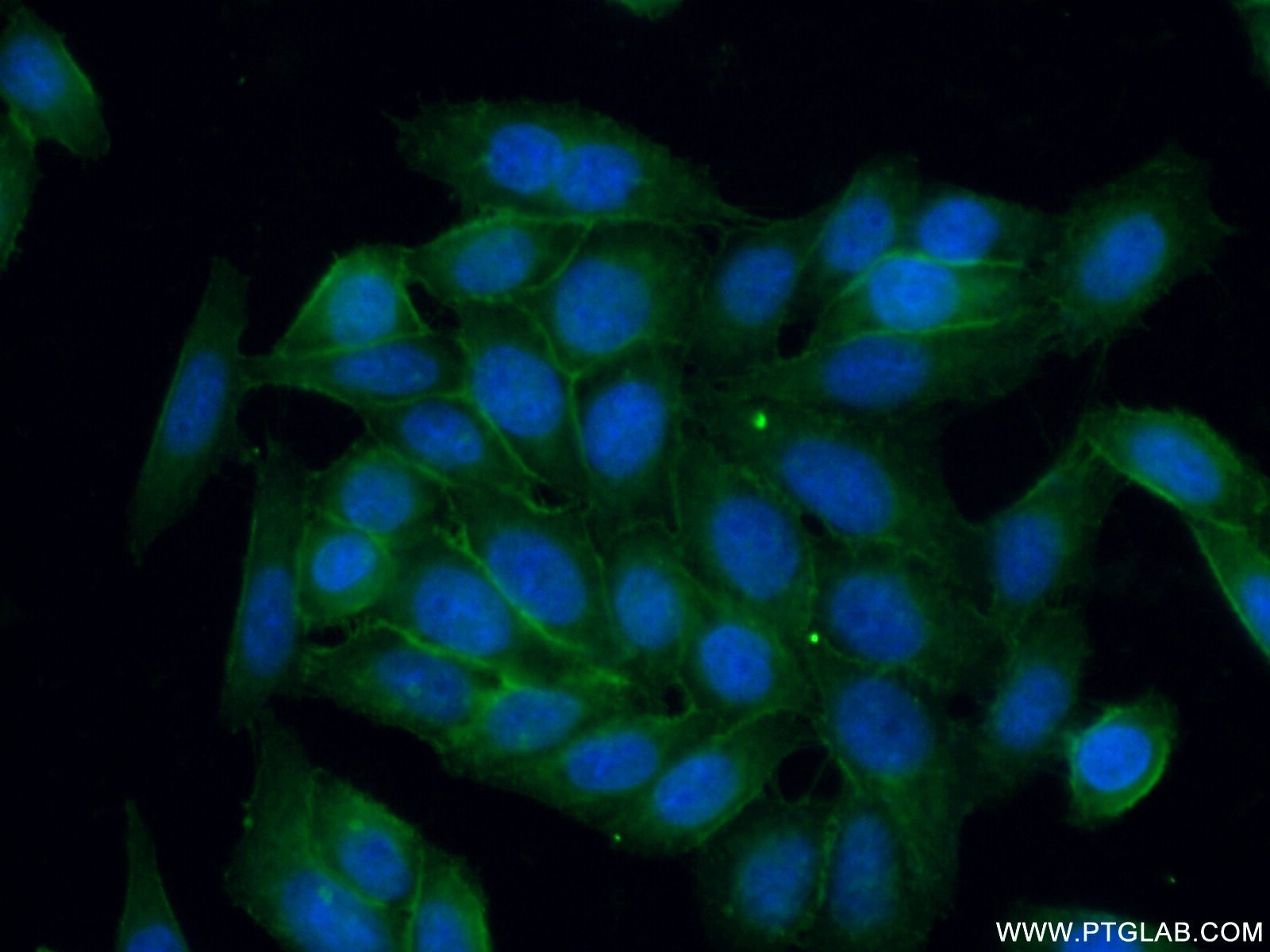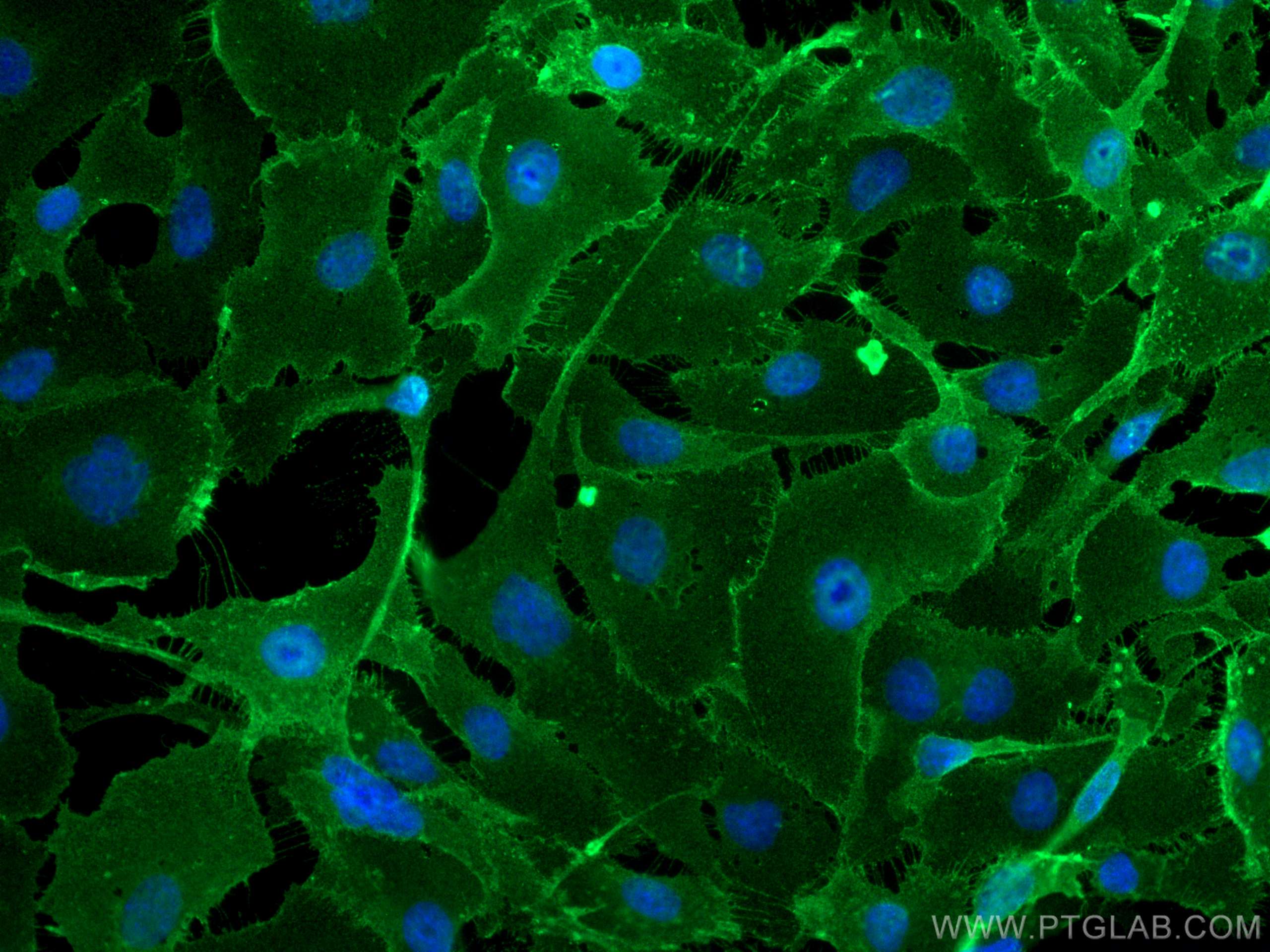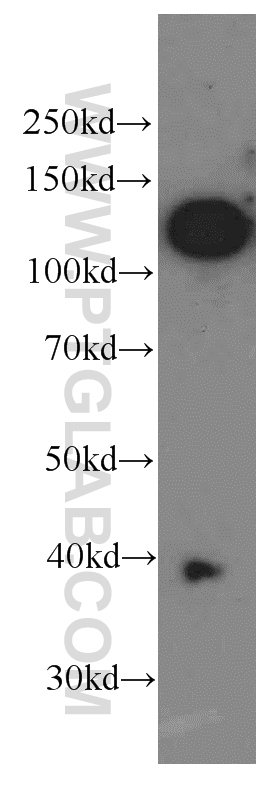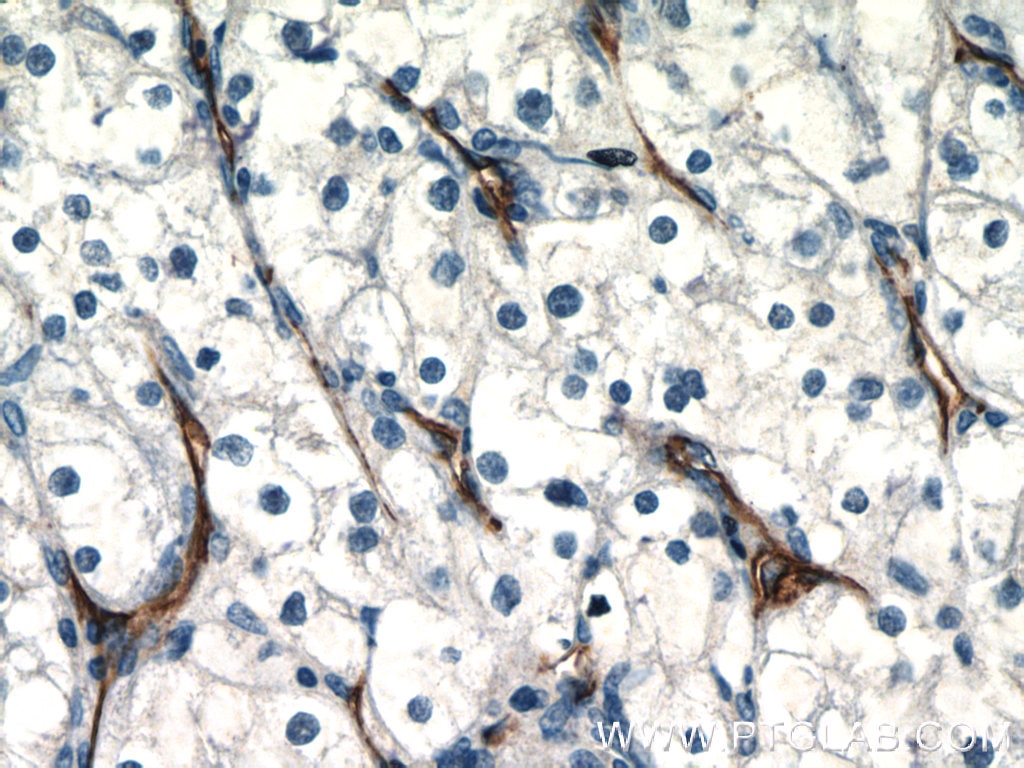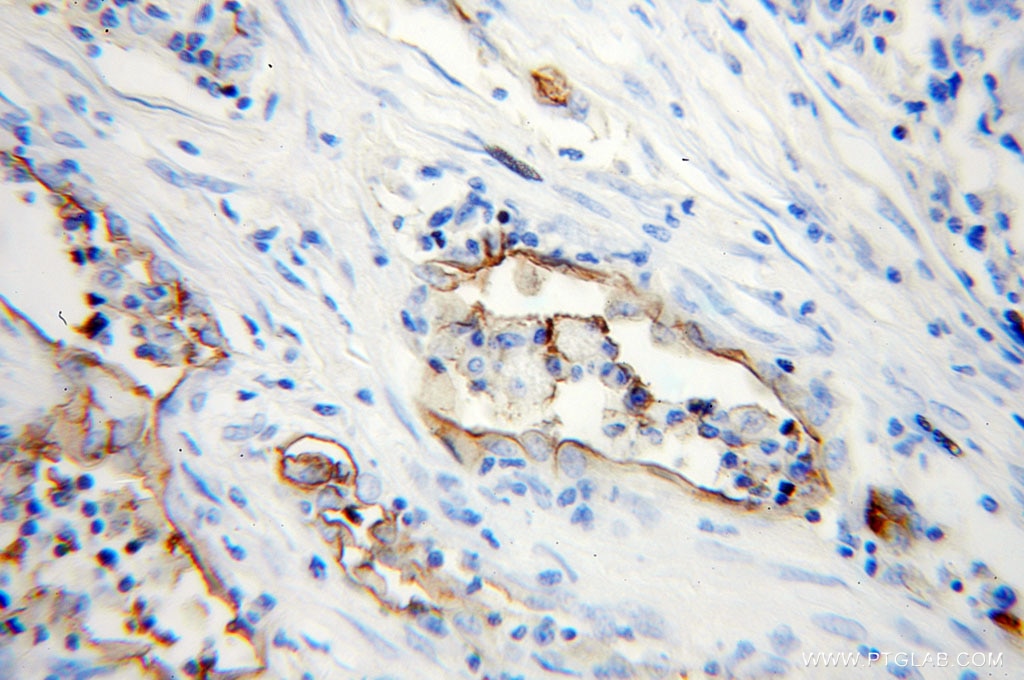- Phare
- Validé par KD/KO
Anticorps Polyclonal de lapin anti-CD146/MCAM
CD146/MCAM Polyclonal Antibody for WB, IP, IF, IHC, ELISA
Hôte / Isotype
Lapin / IgG
Réactivité testée
Humain, rat, souris
Applications
WB, IHC, IF/ICC, IP, ELISA, Cell treatment
Conjugaison
Non conjugué
N° de cat : 17564-1-AP
Synonymes
Galerie de données de validation
Applications testées
| Résultats positifs en WB | cellules HeLa, cellules A375, cellules HepG2, cellules HUVEC, tissu pulmonaire de souris |
| Résultats positifs en IP | cellules HeLa, cellules HepG2 |
| Résultats positifs en IHC | tissu de tumeur ovarienne humain, tissu cardiaque humain, tissu cérébral humain, tissu placentaire humain, tissu pulmonaire humain, tissu rénal humain, tissu splénique humain, tissu testiculaire humain il est suggéré de démasquer l'antigène avec un tampon de TE buffer pH 9.0; (*) À défaut, 'le démasquage de l'antigène peut être 'effectué avec un tampon citrate pH 6,0. |
| Résultats positifs en IF/ICC | cellules HUVEC, cellules HeLa |
Dilution recommandée
| Application | Dilution |
|---|---|
| Western Blot (WB) | WB : 1:2000-1:10000 |
| Immunoprécipitation (IP) | IP : 0.5-4.0 ug for 1.0-3.0 mg of total protein lysate |
| Immunohistochimie (IHC) | IHC : 1:200-1:600 |
| Immunofluorescence (IF)/ICC | IF/ICC : 1:50-1:500 |
| It is recommended that this reagent should be titrated in each testing system to obtain optimal results. | |
| Sample-dependent, check data in validation data gallery | |
Applications publiées
| KD/KO | See 5 publications below |
| WB | See 8 publications below |
| IHC | See 7 publications below |
| IF | See 10 publications below |
| IP | See 1 publications below |
| FC | See 3 publications below |
Informations sur le produit
17564-1-AP cible CD146/MCAM dans les applications de WB, IHC, IF/ICC, IP, ELISA, Cell treatment et montre une réactivité avec des échantillons Humain, rat, souris
| Réactivité | Humain, rat, souris |
| Réactivité citée | rat, Humain, souris |
| Hôte / Isotype | Lapin / IgG |
| Clonalité | Polyclonal |
| Type | Anticorps |
| Immunogène | CD146/MCAM Protéine recombinante Ag11762 |
| Nom complet | melanoma cell adhesion molecule |
| Masse moléculaire calculée | 646 aa, 72 kDa |
| Poids moléculaire observé | 113-120 kDa |
| Numéro d’acquisition GenBank | BC056418 |
| Symbole du gène | CD146 |
| Identification du gène (NCBI) | 4162 |
| Conjugaison | Non conjugué |
| Forme | Liquide |
| Méthode de purification | Purification par affinité contre l'antigène |
| Tampon de stockage | PBS avec azoture de sodium à 0,02 % et glycérol à 50 % pH 7,3 |
| Conditions de stockage | Stocker à -20°C. Stable pendant un an après l'expédition. L'aliquotage n'est pas nécessaire pour le stockage à -20oC Les 20ul contiennent 0,1% de BSA. |
Informations générales
CD146, also known as melanoma cell adhesion molecule (MCAM) or MUC18, originally identified as a biomarker of melanoma progression, is a transmembrane glycoprotein of 113-130 kDa, belonging to the immunoglobulin (Ig) superfamily (PMID: 8378324; 25993332). Structurally, it consists of five Ig domains, a transmembrane domain, and a cytoplasmic region. In normal adult tissue, CD146 is primarily expressed by vascular endothelium and smooth muscle. CD146 is a key cell adhesion protein in vascular endothelial cell activity and angiogenesis, and has been used as marker of circulating endothelium cells (CECs) (PMID: 19356677). In addition to the membrane-anchored form of CD146, a soluble form of CD146 (sCD146, 105 kDa) has also been found in human plasma and in the supernatant of cultured human endothelial cells (PMID: 9462829; 19229070; 16374253; 14597988).
Protocole
| Product Specific Protocols | |
|---|---|
| WB protocol for CD146/MCAM antibody 17564-1-AP | Download protocol |
| IHC protocol for CD146/MCAM antibody 17564-1-AP | Download protocol |
| IF protocol for CD146/MCAM antibody 17564-1-AP | Download protocol |
| IP protocol for CD146/MCAM antibody 17564-1-AP | Download protocol |
| Standard Protocols | |
|---|---|
| Click here to view our Standard Protocols |
Publications
| Species | Application | Title |
|---|---|---|
Biomaterials Macropore design of tissue engineering scaffolds regulates mesenchymal stem cell differentiation fate. | ||
Oncogene The histone demethylase KDM3A, and its downstream target MCAM, promote Ewing Sarcoma cell migration and metastasis.
| ||
Cell Prolif Dental pulp stem cells-based therapy for the oviduct injury via immunomodulation and angiogenesis in vivo. | ||
Stem Cell Res Ther Connective tissue growth factor promotes cementogenesis and cementum repair via Cx43/β-catenin axis | ||
J Proteome Res Comparative Proteomic Analysis of Primary Schwann Cells and a Spontaneously Immortalized Schwann Cell Line RSC 96: A Comprehensive Overview with a Focus on Cell Adhesion and Migration Related Proteins.
|
Avis
The reviews below have been submitted by verified Proteintech customers who received an incentive forproviding their feedback.
FH Boyan (Verified Customer) (09-28-2020) | This antibody recognises a band around the expected molecular weight, however this band did not respond to deglycosylation treatment. This strongly suggests the recognised band is another protein other than Mcam, because Mcam is glycosylated, and looking at the other Mcam antibody from the same brand (66153-1-g), it is clear that the band is responsive to PNGaseF treatment.
|
